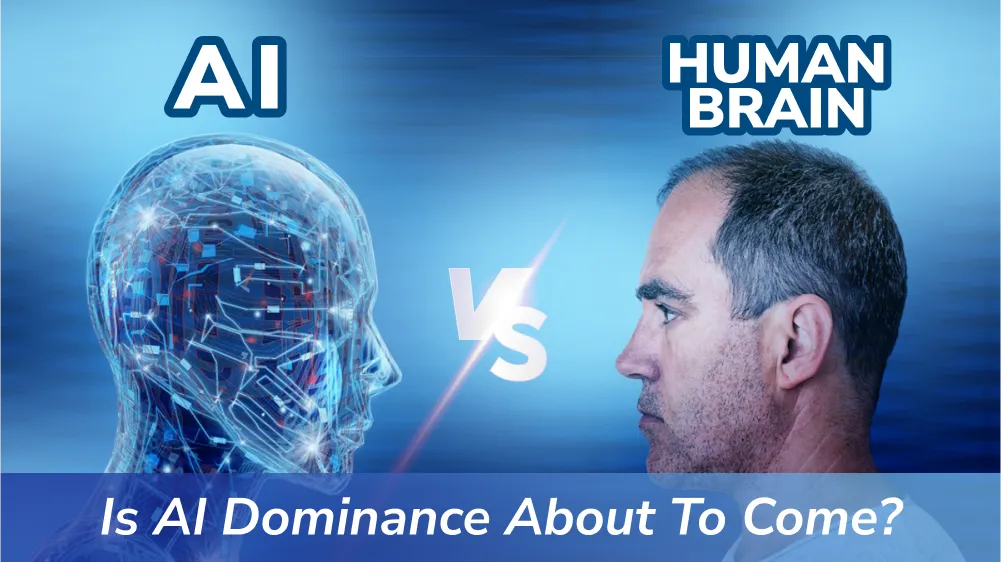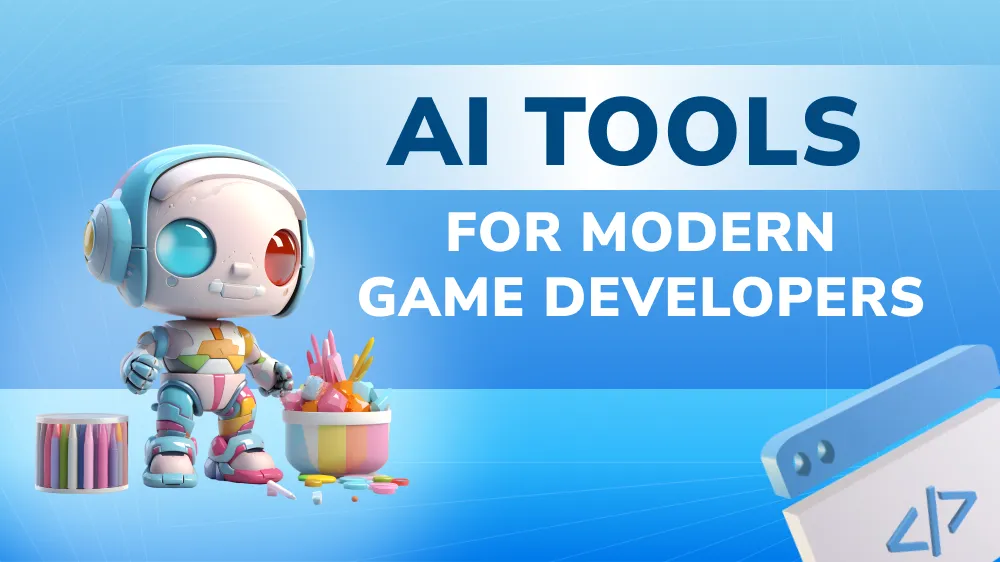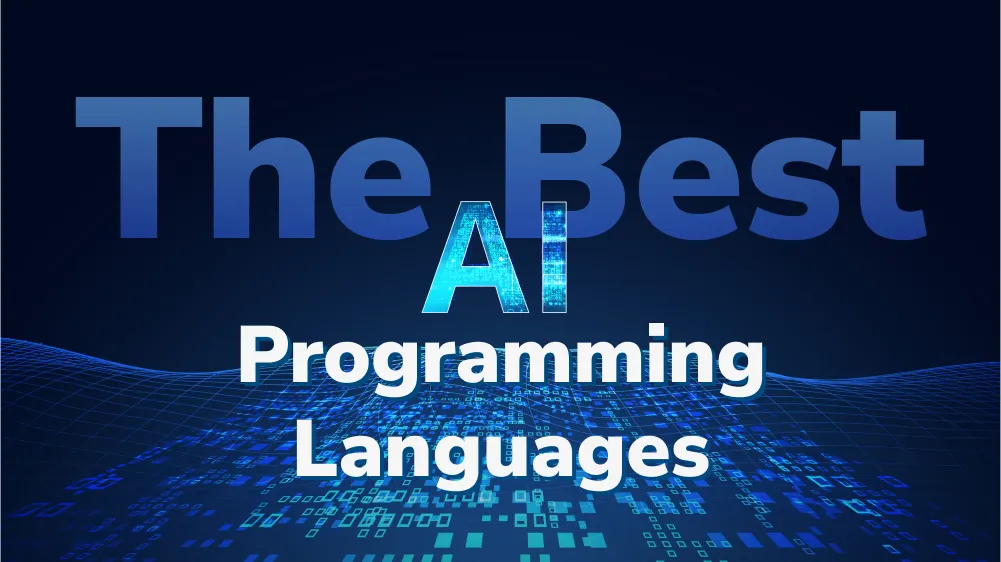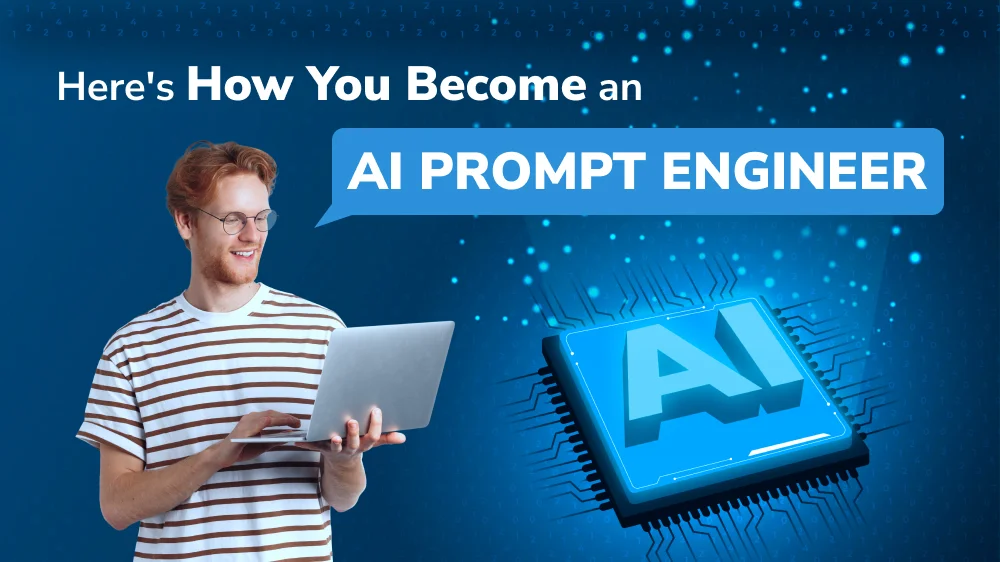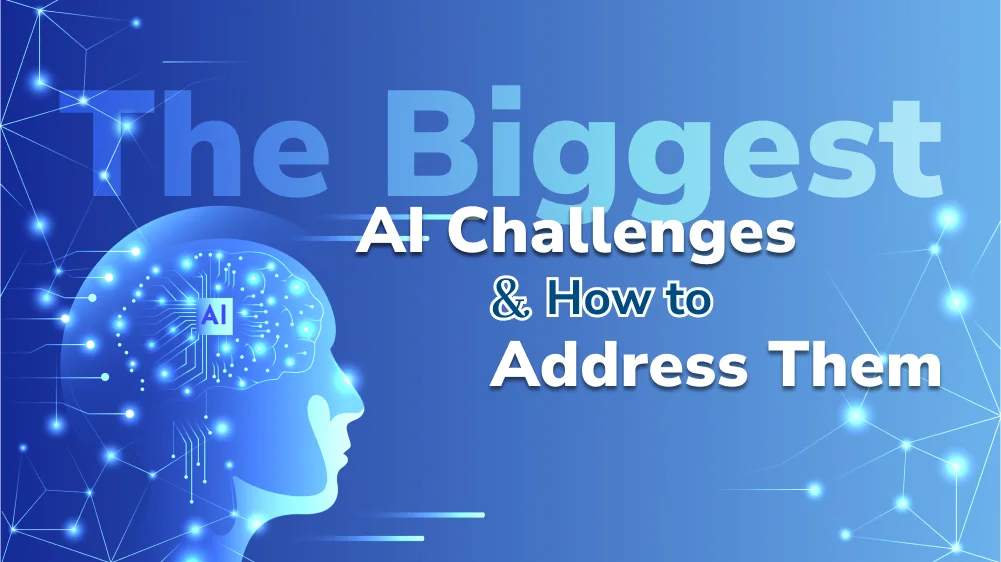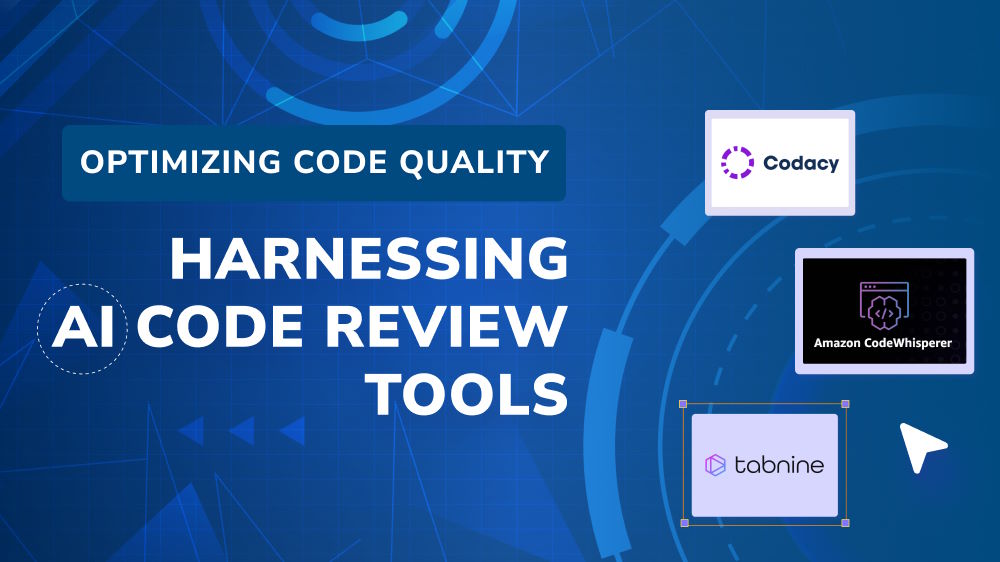The Role of AI Code Generation in Software Development
Explore why developers should harness AI tools to streamline coding tasks and development processes while being mindful of the drawbacks of AI code generation.
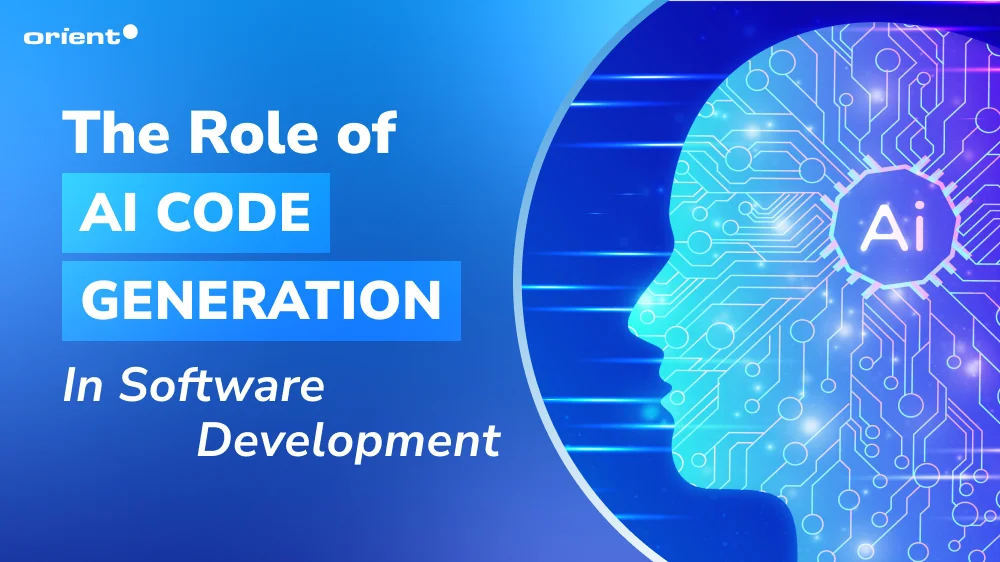
Content Map
More chaptersWith the advent of AI code generation tools like GitHub Copilot and Amazon CodeWhisperer, developers can harness the power of AI to be more efficient, spend less time on manual tasks, and streamline code maintenance and code reviews. When combined with firm quality assurance procedures, AI code generators can help produce higher-quality software.
Key takeaways
- AI code generators are software tools utilizing machine learning (ML) and deep learning algorithms to help developers write code.
- When combined with regular reviewing and testing, AI code generators can help developers be more productive and maintain code with ease.
- Some of the most prevalent AI code generators include GitHub Copilot, Amazon CodeWhisperer, and Google AI Codey.
What Is AI Code Generation?
AI code generation is the use of software tools to write code. The ML and DL algorithms that power these tools are trained on existing code, typically obtained from open-source projects. By adopting natural language processing (NLP) techniques and large language models (LLMs), developers use these tools to:
- Review and approve contextual code snippets (partial or full) as they write code.
- State their intentions to use an AI chatbot to generate code suggestions.
- Generate names for functions and variables for documentation purposes.
How Does AI Code Generation Work?

AI code generators are AI-assisted tools designed to understand a developer’s workflow and the intentions of their code. It then uses that data to anticipate a developer’s next steps by generating code automatically.
AI code generators rely on ML and DL algorithms, trained on large and diverse volumes of existing code, to perform predictive actions, and NLP technologies allow developers to converse in writing with AI chatbots to issue, fine-tune, and approve requests. For example, if a developer knows what function they want the code to perform but not the code itself, they can describe the function to the AI chatbot, which should respond with the appropriate code snippet or complete function.
Unlike low-code or no-code development tools comprising pre-built modules, AI code generators can generate custom code from scratch without an existing development platform.
What Are the Advantages of AI Code Generators?
When used correctly and monitored for quality assurance, AI code generators can benefit developers and clients in various ways, including:
Reduce Manual Coding
Instead of writing all code from scratch, developers can use AI code generators to automatically generate code. They can use the autocomplete function to generate partial code snippets or complete functions. They can also interact with an AI chatbot to state their intentions and generate code suggestions.
AI code generation can speed up the process of writing code that a developer was going to write from scratch anyway, and it can help them jog their memory by translating their written intentions into contextually relevant code.
Speed Up Code Reviews and Maintenance
When a developer in an unfamiliar environment needs to perform maintenance or a code review, they can use an AI code generator to understand the functions and variables within the source code (code repository).
The AI code generator can produce more accurate responses if such functions and variables have specific names. Labeling makes it easier for the AI code generator to identify and contextualize a code snippet or a complete function, speeding up the code review and maintenance process.
Additionally, AI code generators can analyze trends and patterns in the source code to identify and suggest fixes for bugs, duplicate code, and inconsistencies.
Increase Accessibility
For novice developers, AI code generator tools can be an effective way to help them come to grips with basic coding concepts. These tools can provide real-time feedback, alerting developers to mistakes and suggesting areas of improvement.
These accessibility benefits extend to a non-technical audience, people who are subject matter experts first and programmers second, such as data scientists who are experts in analyzing data and not creating software applications.
That said, all developers should know what they’re doing and not just accept every AI-powered suggestion.
What Are the Disadvantages of AI Code Generators?
Despite the productivity benefits, AI code generators can introduce new problems if developers don’t verify the results they produce. An independent study found that GitHub Copilot had a 91.5% success rate in generating valid code but only a 28.7% success rate in correcting existing code. Developers should be aware of the pitfalls of AI code generation, including:
Risk of Technical Debt
Technical debt is the cost of prioritizing speed over quality. It is the measurable time spent on reworking code. AI code generators are prone to generating results that may be syntactically correct but also hard to understand, inconsistent with predefined coding standards, and not optimized for performance.
A 2024 report found that the code churn rate has increased to 7.1% – an increase of 3.5% compared to the pre-AI era of 2021, meaning developers spend more time on code revisions than ever due to the advent of services like GitHub Copilot. While some code churn is acceptable in custom software development, too many code rewrites may prolong development and take time away from developers on important tasks.
Security Vulnerabilities
Aside from being hard to understand and overly verbose, AI-generated code may pose a security risk if developers fail to review and test it. Insecure code may expose system flaws or weaknesses that threat actors can exploit to access and compromise an application’s security.
How prevalent is insecure AI in software development? In a 2023 survey, 56.4% of respondents (537 software engineering and security squad members and leaders) said they frequently encounter security issues with AI code suggestions.
While it’s good that developers can identify insecure AI-generated code, this study highlights the importance of choosing a software development team that prioritizes security. At Orient Software, our independent QA and software testing team performs rigorous testing to foresee and address any potential errors – before they escalate to service-impacting issues.
Decrease in Critical Thinking and Problem-Solving Tools
Creative problem-solving is an essential skill for software developers. It enables them to identify a problem, experiment with different solutions, and choose the best solution to resolve that problem. For example, developers had to use creative problem-solving to ensure that Google autocomplete did not show predictions that violated Google Search’s policies.
Unfortunately, developers who rely on AI-generated code risk losing (or never acquiring) their problem-solving skills if they don’t understand what the code does, how it works, and how it fits within the context of the source code. Additionally, developers may lose control of their source code, making it harder to maintain than if they wrote their code manually.
The Best AI Code Generators of 2024

Now, it is everything you need to know about the pros and cons of code generators; let’s look at the various tools that are available. We’ll briefly cover their functions and what sets each tool apart. Whether you’re a developer or a client, this information will help you better understand the influence of these AI generator tools on the software development lifecycle (SDLC).
GitHub Copilot
Developed by GitHub in collaboration with OpenAI, Copilot uses a Generative Pre-trained Transformer (GPT) to understand natural language and generate code based on context and a developer’s intentions. With support for programming languages like JavaScript, Go, Ruby, and Python, Copilot can be deployed into almost any Integrated Development Environment (IDE), such as JetBrains and Visual Studio Code.
Amazon CodeWhisperer
Like Copilot, Amazon CodeWhisperer is another AI code generator that can autocomplete code based on context and intent. What sets CodeWhisperer apart? The first is the free pricing tier for individual developers, whereas Copilot is only free to students and educators. The second is a feature that tells developers when a code suggestion is similar to its training data – letting them decide on whether to use the code.
Tabnine
With a focus on privacy and security, Tabnine goes beyond offering real-time code autocompletion. The platform never stores your code or uses your code to train its AI. It’s also trained on only open-source code with permissive licenses. For developers concerned about the legal implications of AI code generators, Tabnine is promoting itself as an ethical alternative.
Google AI Codey
A three-suite of AI code assisting tools, Google AI Codey has APIs for code generation, code chat, and code completion. Each API performs a specific function. For example, the code generation API can generate code based on natural language descriptions, and the code chat API can answer code-related questions. Google AI Codey offers limited integration support for Visual Studio Code, PyCharm, and IntelliJ IDEA.
Choose Your Development Team Wisely
Despite the productivity benefits of AI code generators, the technology can be misused to generate low-quality and insecure code. To avoid this outcome, pick a team that always puts people first.
At Orient Software, we incorporate quality assurance into each step of the development lifecycle. Our rigorous testing procedures identify problems early before they escalate into service-impacting issues. In addition, we welcome frequent check-ins to keep you informed on the status of your project.
Check how our custom software development services can help empower your business. Contact us today.

